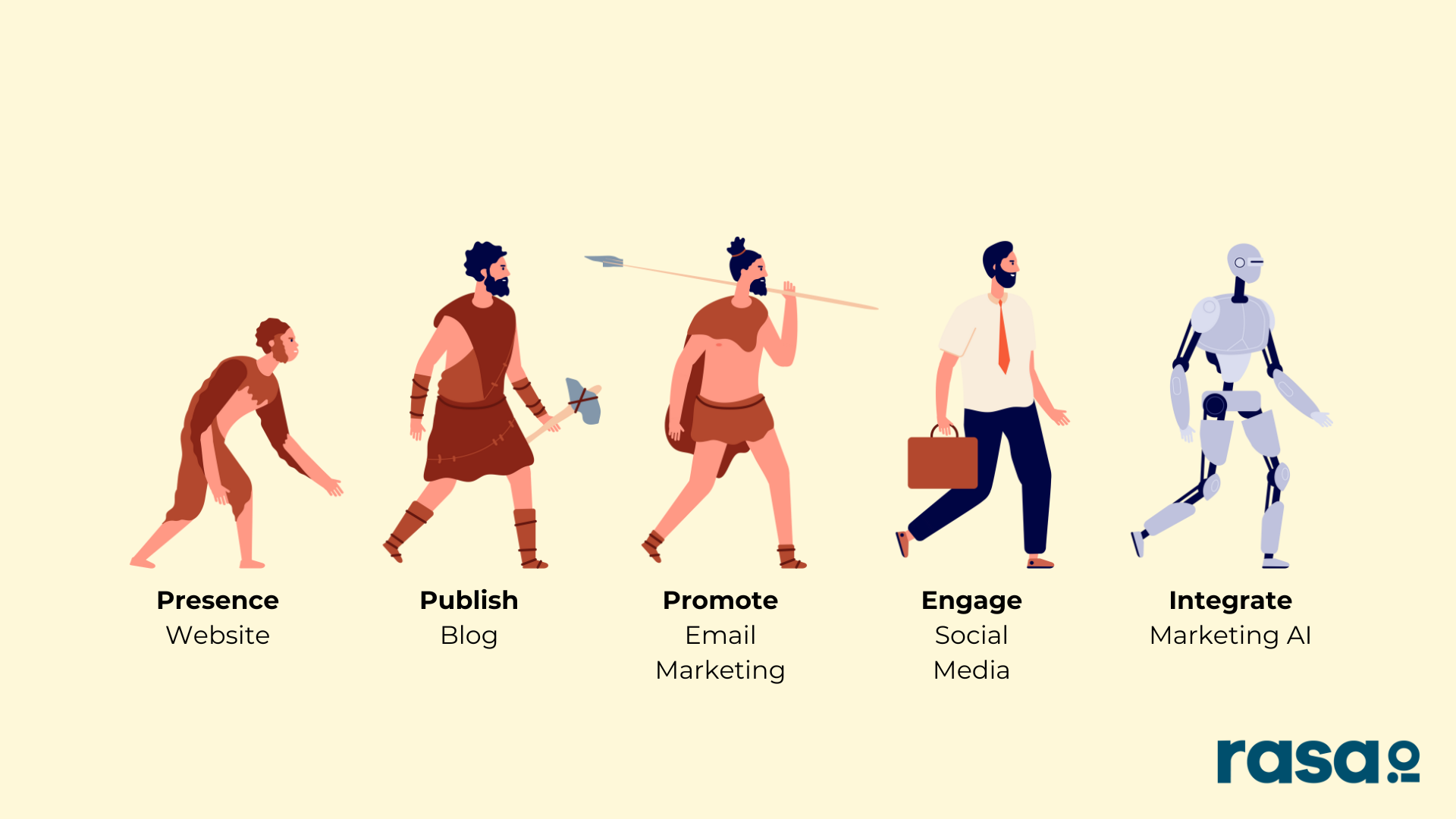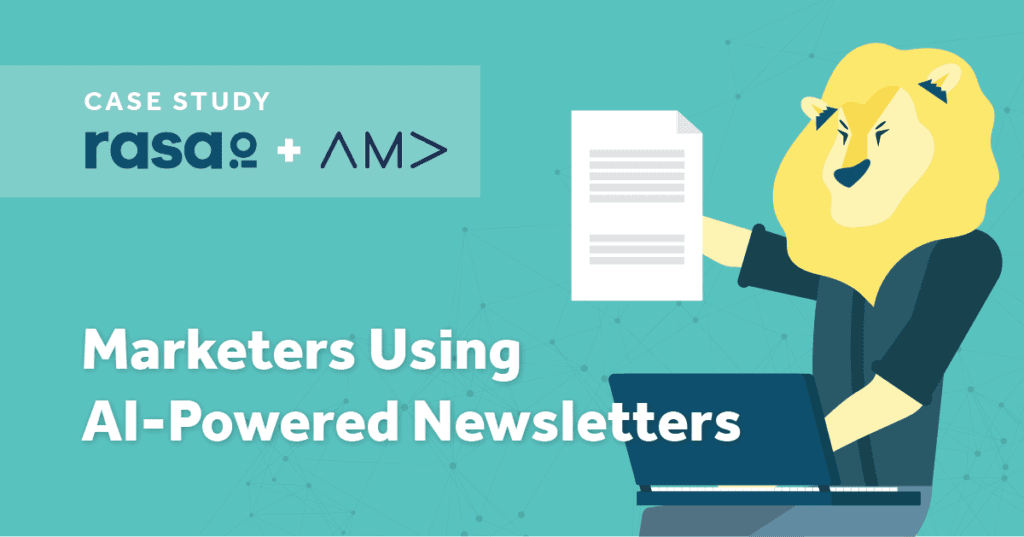Let’s face it, in the vast ocean of online content, sailing through the waves of mediocrity can be a daunting challenge. We all know that exceptional content is the key to attracting your target audience. But in 2024, the demand for excellence will reach new heights.
Standing out requires more than just a splash of creativity—it demands strategy, insight, and a touch of digital wizardry. As the marketing landscape evolves, delivering content that not only stays afloat but rises above the tide is crucial.
The difference between being just another page and the go-to destination lies in mastering content relevance, quality, and strategy. That’s why you need content intelligence—to eliminate the fog of guesswork and achieve content mastery.
Understanding Content Intelligence
What is Content Intelligence?
Content intelligence leverages advanced technologies, data analytics, and artificial intelligence to enhance the creation, analysis, and management of digital content. It represents the capacity to extract meaningful insights from vast datasets, enabling content creators and marketers to make informed decisions, personalize user experiences, and optimize content strategies in real-time.
Evolution of Content Intelligence
Inspired by Content Marketing Institute
The early days: foundations of understanding
In the early years, content intelligence laid its roots in the basic understanding of user behavior and preferences. Marketers began to realize that creating content wasn’t just about the message but about how that message resonated with the audience.
Rise of analytics: from insights to strategy
As analytics became more sophisticated with the introduction of tools like rule-based AI, content intelligence took a giant leap forward. The ability to analyze user data allowed businesses to tailor their content strategies based on real-time insights. This era marked a shift from generic content creation to the targeted and data-driven components we have today.
Shift Your Generic Email Newsletter With Data-Driven AI!
Use smart technology to save you time curating so you can focus on the “bajillion” other things you need to do.
Key Components of Content Intelligence
By harnessing the power of content intelligence, organizations can make informed, data-driven decisions about their content strategy, enhance user experiences, and drive better business results through:
Content analysis
The ability to break down and fully understand content is at the heart of content intelligence. Content analysis is the process of obtaining useful information from various forms of media, including text, images, and audio. This method delves into the finer points that make content connect with its target audience, going beyond simple comprehension.
Data extraction
It is critical to be able to pull useful information from a variety of sources. Powerful data extraction methods are the backbone of content intelligence, allowing it to mine both structured and unstructured data sets for useful insights. This establishes a solid groundwork for knowledgeable content creation by guaranteeing a thorough understanding of the subject matter.
For example, imagine how data could improve suggestions for business phone systems. By analyzing and leveraging user data, these systems could provide tailored scripts or prompts for customer interactions, ensuring a cohesive communication experience.
Personalization
Content intelligence is not a one-size-fits-all approach. One way to make content more personalized is to take each user’s demographics, interests, and actions into account. Content intelligence creates tailored experiences by analyzing individual user data.
For example, this rasa.io case study shows how personalized emails strengthened the bond between the material and its viewers, to provide a better user experience and boost performance.
Search and Retrieval
Content intelligence relies on efficient retrieval and search mechanisms. These components make sure the correct information is available when needed. Whether that is searching for pertinent data inside an organization or retrieving content for users to consume.
So, by incorporating advanced search algorithms and semantic understanding, businesses can ensure that users find the most relevant and valuable content, leading to a more satisfying and efficient search experience.
Content optimization
Content intelligence revolves around optimizing content for maximum impact. Aligning content with best practices and analyzing performance data to refine and enhance future content strategies are both part of this process. With optimization, you can be sure that all of your content, whether landing pages or email newsletters, contributes significantly to your overall objectives.
This goes beyond traditional optimization practices as it often involves refining content based on real-time analytics to meet the evolving preferences and behaviors of the target audience.
Content governance
The purpose of content governance is to set standards and regulations for the production, dissemination, and administration of content. This component guarantees brand alignment, compliance, and consistency across all channels. Strong governance frameworks are essential for content intelligence to keep the content ecosystem running smoothly.
Automated systems thus ensure that content adheres to regulatory standards, industry guidelines, and internal governance policies. This not only mitigates risks but also builds trust with the audience.
Workflow automation
Content intelligence also revolves around efficiency. Automation of workflows streamlines the content creation process, reducing manual efforts and errors. From ideation to publication, automation ensures a seamless and agile content creation pipeline. This not only enhances overall productivity but also introduces the concept of “creator management,” ensuring the optimization of the human aspect of content creation alongside automated processes.
This efficiency allows content creators to focus on the creative aspects of their work, increasing overall productivity.
Semantic understanding
In addition to matching keywords, content intelligence can understand relationships, context, and language subtleties through semantic understanding. With this feature, systems can better understand human understanding and interpret content accordingly. This capability leads to richer interactions as it enhances the accuracy and relevance of content recommendations and insights.
Multimodal content processing
Nothing is limited to text alone; content can take many forms. The term “multimodal content processing” refers to the practice of extracting meaning from a wide variety of media formats. To accommodate the multimedia-rich digital environment, this component guarantees a comprehensive strategy for content intelligence.
Benefits of Content Intelligence
1. Improved User Engagement
Content intelligence transforms user engagement from a passive interaction to an immersive and personalized experience. By understanding user preferences and behaviors, businesses can deliver content that resonates, captivates, and keeps audiences coming back for more.
2. Improved SEO
By analyzing data trends, identifying relevant keywords, and understanding user intent, content creators can boost overall performance. For example, you can use email newsletters to drive traffic towards your keyword optimized blog pages to help boost your SEO performance. This not only improves organic visibility but also ensures that the content aligns with the constantly evolving criteria set by search engines.
3. Maximizing Revenue and Return on Investment (ROI)
The impact of any content or publishing strategy on revenue and ROI is ultimately what determines its success. Content intelligence plays a pivotal role in this by ensuring that every piece of content contributes meaningfully to overarching business goals. Through personalized content, optimized SEO, and efficient creation, businesses can maximize their revenue streams and achieve a positive return on their content investment.
Content Intelligence in Practice
AI-augmented creativity
The future of content intelligence lies in the collaboration between artificial intelligence (AI) and human creativity. AI is expected to augment, rather than replace, human creativity in content creation. This trend involves AI systems providing insights, suggestions, and automating routine tasks, allowing human creators to focus on strategic and inventive aspects.
A great example of opportunities created by AI technologies is what some experts are calling “LLMOps.” But what is LLMOps? LLMOps ensures the smooth deployment of large language models into production environments.
Advanced personalization
The demand for personalized content experiences will continue to rise, especially when it comes to email marketing and newsletters. Future trends in content intelligence involve even more advanced personalization techniques, leveraging machine learning algorithms to predict user preferences with greater accuracy and deliver hyper-personalized content in real-time.
Enhanced multimodal content processing
As content consumption diversifies, content intelligence will evolve to process and analyze an even broader range of content types. From augmented reality (AR) and virtual reality (VR) to interactive multimedia experiences, future trends will focus on enhancing the analysis of multimodal content for a more immersive user experience.
Conclusion
Content intelligence stands at the forefront of reshaping the digital landscape, offering a dynamic and transformative approach to content creation, delivery, and management. As businesses strive to stay ahead in the competitive digital ecosystem, content intelligence emerges as a guiding light, enabling you to not only adapt but thrive in the ever-evolving world of digital content.














